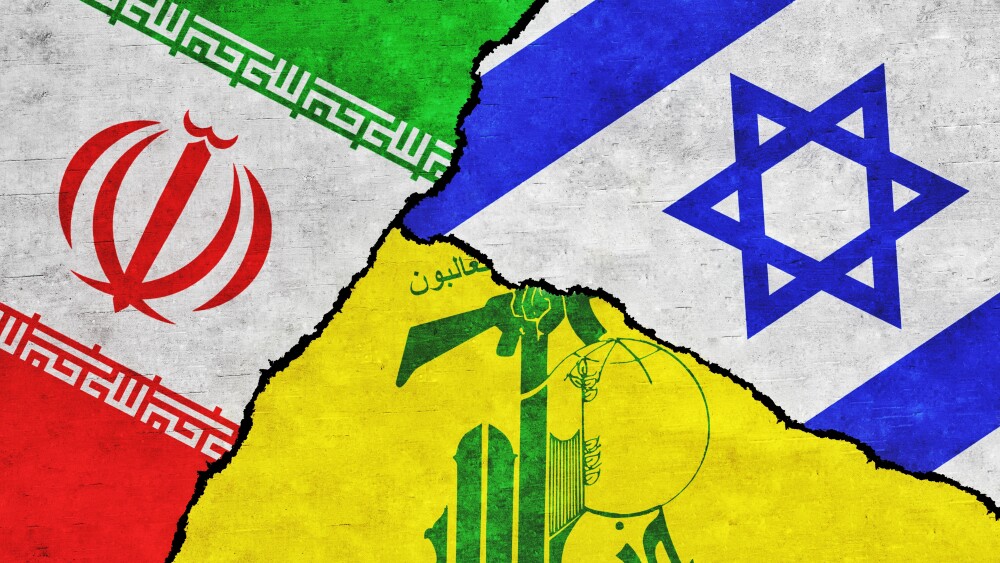The Islamic Republic’s diplomatic and economic predicament has deepened in the two months since Israel’s twelve-day air offensive devastated Iran’s nuclear and military facilities. As Iranian citizens face more daily hardships, equally troubling for Tehran is the erosion of its regional sway. A tour last week of Iraq and Lebanon by Iran’s national security chief, Ali Larijani, ended in humiliation.
Only two years ago, both countries received Iranian envoys with full protocol. Today, however, once dominant proxies, like Lebanese Hezbollah, are shadows of their former selves, while Baghdad increasingly asserts national sovereignty.
[Iran’s] once dominant proxies, like Lebanese Hezbollah, are shadows of their former selves, while Baghdad increasingly asserts national sovereignty.
Larijani, a centrist by the Islamic Republic’s political standards, served as parliamentary speaker for twelve years before more radical factions backed by Supreme Leader Ali Khamenei sidelined him in 2020. Barred from running for president, he remained on the margins as a Khamenei adviser until his reemergence this month as secretary of the Supreme National Security Council, almost certainly at Khamenei’s behest.
Iranian commentators billed his trip to Iraq and Lebanon as a mission to forge new understandings in the aftermath of Tehran’s military defeat by Israel. Official media suggested he would sign a new security agreement with Iraq.
One focal point was a pending bill in the Iraqi parliament to formalize the Iran-backed Popular Mobilization Forces as an official military branch, granting pension rights and a separate budget exceeding $3 billion. The measure faces resistance from non-Shiite communities and the United States and has languished in parliament. Analysts initially assumed Larijani’s visit aimed to push for the law’s passage to bolster Tehran’s weakening proxies.
But on August 14, Iraqi officials clarified that Larijani had merely signed the minutes of a previous security meeting, concerning Iranian Kurdish armed groups sheltering in Iraq—hardly the sweeping accord suggested by Tehran’s media. Coupled with Iraqi leaders’ emphasis on sovereignty, the episode underscored Iran’s waning clout.
The trip’s low profile continued in Beirut, where no Lebanese officials greeted Larijani upon arrival. Instead, Hezbollah members met him. The foreign minister, however, declined a meeting. Days earlier, the Lebanese cabinet—long constrained by Hezbollah—had approved a U.S.-backed plan to disarm the group and stepped up efforts to locate and dismantle its weapons caches.
In talks with Lebanese President Joseph Aoun, Larijani heard a blunt warning: No armed group in Lebanon can operate under foreign patronage. Aoun stressed that ties with Iran must encompass all Lebanese, not merely one sect, and criticized the rhetoric of some Iranian officials as unhelpful. He reaffirmed that the Lebanese state and its armed forces alone are responsible for safeguarding the population.
After nearly two decades of dominating Lebanese politics and security through Hezbollah, Tehran faced a public rebuke. Even during a press conference, journalists pressed Larijani with uncomfortable questions, while some Lebanese outlets condemned the visit as “provocative” and “blatant interference.”
After nearly two decades of dominating Lebanese politics and security through Hezbollah, Tehran faced a public rebuke.
Then came another embarrassment: Lebanese media reported that Syria had refused overflight clearance for Larijani’s aircraft, forcing it to detour over Turkey on both legs of the trip. For more than a decade during the Syrian civil war, Iran had poured an estimated $50 billion into Bashar al-Assad’s regime. Now, with Assad gone, Syria is perhaps the most hostile regional state to Iran after Israel.
Larijani’s mission—to mitigate the fallout from June’s defeat—thus ended in failure.
In addition to this humiliation, the Israeli air campaign has revealed a staggering intelligence success: The Israel Defense Forces appeared to possess detailed knowledge of hundreds of high-value targets, including the nightly whereabouts of key commanders. Iran’s security services, long feared for their reach and ruthlessness, appeared blindsided after years of Israeli penetration.
More than any other factor, this intelligence coup has tarnished the regime’s image at home. After 46 years of cultivating fear through repression, Iran’s rulers now stand exposed as failing spectacularly against the adversary they vowed to destroy. As an Iranian social media influencer with 105,000 followers tweeted, “Enjoy these days of Khamenei’s humiliation — soon they’ll be just memories.”






